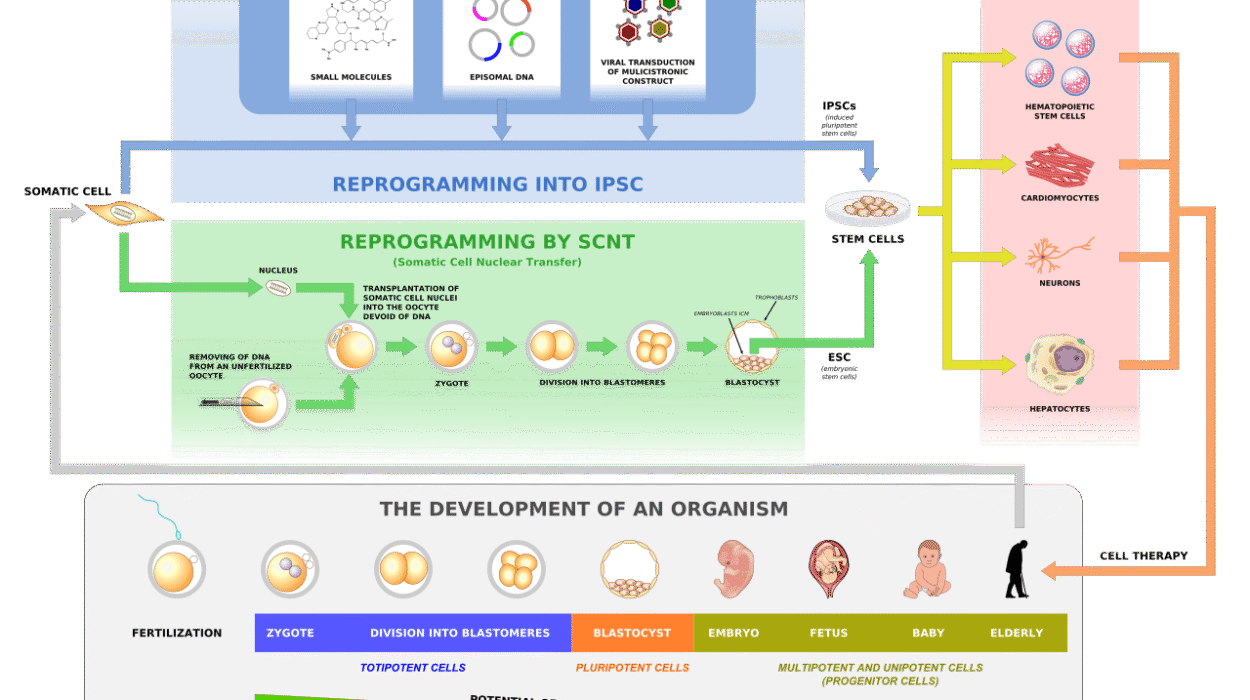Perimenopause doesn’t begin with fireworks or a big announcement. It creeps in subtly, quietly rearranging the body’s internal symphony before most women even realize there’s a new conductor. It’s the phase before menopause when hormone levels, particularly estrogen and progesterone, begin to fluctuate—and sometimes wildly. For many, it starts in their 40s, though some women notice changes as early as their mid-30s. This transitional period can span years, leading up to the official end of menstruation, which is menopause.
But here’s the kicker: perimenopause is often misunderstood or misdiagnosed. Many women experience symptoms without connecting the dots. They may chalk it up to stress, aging, lack of sleep, or even something more serious. That’s why understanding the subtle—and sometimes surprising—signs of perimenopause is crucial. Your body might be whispering long before it ever starts shouting.
When the Period Clock Starts to Falter
One of the first signs that your body is entering perimenopause is a change in your menstrual cycle—but it doesn’t always scream irregularity in the way you might expect. Yes, your periods might become less predictable. Maybe they show up early. Maybe they ghost you entirely for a couple of months. Then just when you think it’s over, bam—they return with a vengeance.
But irregular periods aren’t the only change. The bleeding itself may become heavier, lighter, longer, or shorter. Some women find themselves soaking through pads within hours. Others might barely need protection at all. Spotting between periods can also occur. These changes are the result of erratic ovulation or anovulatory cycles—months when you don’t ovulate at all.
What makes this especially confusing is that many women associate these shifts with stress or lifestyle changes. After all, your 40s can be a hectic time: career demands, children, aging parents, and a never-ending to-do list. It’s easy to write off strange periods as a byproduct of life’s chaos, rather than a hormonal revolution happening just under the surface.
Sleep, Interrupted
You crawl into bed, exhausted, hoping for a full eight hours. But perimenopause has other plans. Nighttime becomes a battleground of restlessness, sudden wake-ups, and strange dreams that make you question your sanity. And don’t even get started on the 3 a.m. insomnia club—it’s a thing, and you’re not alone.
Sleep disturbances during perimenopause can feel like an invisible enemy. You’re tired but wired. You toss and turn. You wake up soaked in sweat or feeling inexplicably anxious. It’s not just frustrating—it’s debilitating. Sleep is your body’s reset button, and without it, everything else spirals: mood, focus, metabolism, and even your immune system.
These sleep issues aren’t just about stress or anxiety; they’re often driven by fluctuating levels of estrogen and progesterone. Estrogen helps regulate body temperature and supports REM sleep, while progesterone has a natural calming effect. When these hormones begin their unpredictable rollercoaster, restful sleep becomes elusive.
Mood Swings That Defy Logic
Ever found yourself crying over a dog food commercial or snapping at your partner for breathing too loudly? Perimenopause might be pulling the strings. Mood swings during this time can be intense and completely out of proportion to the situation. One minute you’re fine, the next you’re an emotional tornado.
These emotional ups and downs can feel eerily similar to PMS, but on steroids. Irritability, rage, sadness, weepiness, anxiety—all can cycle in and out with little warning. And because these feelings can mimic depression or generalized anxiety, they’re often treated with therapy or medication without a deeper look at hormonal shifts.
The link between estrogen and brain chemistry can’t be overstated. Estrogen influences serotonin, dopamine, and other mood-regulating neurotransmitters. As hormone levels swing, so does your emotional equilibrium. It’s not in your head—it’s in your hormones.
Hot Flashes and Night Sweats: Not Just for Menopause
Many women associate hot flashes with full-blown menopause, but they often start years earlier during perimenopause. One moment you’re sipping your latte, the next your face is flushed, sweat is pooling in places you didn’t know could sweat, and you’re fanning yourself with the nearest menu like your life depends on it.
These temperature surges can strike any time—during meetings, workouts, or while binge-watching your favorite show. At night, they sneak up while you sleep, often followed by chills as your body tries to recover. Night sweats can soak sheets, force you out of bed, and leave you disoriented and drained.
The cause? The hypothalamus—the brain’s thermostat—becomes hypersensitive to even small changes in body temperature due to fluctuating estrogen. Your body interprets this as overheating and responds with a full-blown sweat response. It’s not comfortable, but it’s a classic sign that your hormones are shifting.
Libido on a Rollercoaster
Sex drive during perimenopause can be unpredictable. For some women, it declines dramatically. For others, it spikes unexpectedly. This inconsistency can be confusing and even distressing. And when it’s paired with other changes like vaginal dryness, discomfort during intercourse, or body image concerns, it can affect relationships and self-esteem.
Hormones like estrogen and testosterone play a major role in sexual desire, arousal, and satisfaction. When they start to dip and sway, your libido often follows. Emotional symptoms like mood swings, stress, and fatigue can also impact your interest in intimacy.
But the truth is, a changing sex drive doesn’t mean your sexuality is fading—it’s simply evolving. Many women find that with the right support, communication, and sometimes lubrication (literally), this can be a deeply satisfying time in their sexual journey.
Weight Gain That Doesn’t Play Fair
You’re eating the same. Exercising the same. Maybe even working harder than ever. But the scale creeps up, especially around the belly. Welcome to one of the most maddening signs of perimenopause: weight gain that feels completely out of your control.
This isn’t just about calories in and calories out. Hormonal fluctuations, particularly falling estrogen levels, influence how your body stores fat. You may notice a shift from pear-shaped to more apple-shaped, with fat accumulating around the midsection. Metabolism slows. Muscle mass decreases. And insulin sensitivity can change, making it easier to gain weight and harder to lose it.
Compounding the issue, stress hormones like cortisol are often elevated during this phase, which can lead to increased cravings and fat storage. It’s a biological setup, not a personal failure. Recognizing this shift can help you approach your body with more compassion—and adjust your health strategies accordingly.
Memory Lapses and Brain Fog
You walk into a room and forget why. You lose your keys, your train of thought, and occasionally your patience. Brain fog during perimenopause is real, and it can make you feel like you’re losing your edge.
These cognitive hiccups can be subtle at first—missing appointments, forgetting words, struggling to focus during meetings. But they can escalate and become a source of anxiety. What’s most frightening for many women is the fear that it’s early dementia or something more serious.
Estrogen helps regulate neurotransmitters and supports synaptic function, both of which are essential for memory and mental clarity. As estrogen declines, so does your brain’s efficiency. Sleep disturbances, mood issues, and stress only add fuel to the fog.
The good news? This kind of cognitive decline is usually temporary and improves post-menopause. But in the thick of it, acknowledging it’s hormonal—not a character flaw—can be liberating.
Skin, Hair, and Nails Telling a New Story
Your skin suddenly feels drier, thinner, or more prone to breakouts. Hair that once flowed thick and full now seems to shed in the shower. Your nails become brittle or peel easily. These cosmetic changes may seem minor compared to hot flashes or mood swings, but they can be emotionally devastating.
Estrogen is a key player in maintaining collagen, hydration, and hair growth. As levels drop, the skin loses elasticity and moisture. Hair follicles shrink, and nail beds weaken. It’s a slow and often frustrating process that can make women feel like they’re aging overnight.
What’s important to remember is that these changes are common and largely reversible with care. Hydration, gentle skincare, hormone-friendly nutrition, and targeted treatments can all help restore your body’s external balance.
Changes in Urinary and Vaginal Health
One of the lesser-discussed symptoms of perimenopause is how it affects the urinary tract and vagina. Increased urgency, more frequent UTIs, and mild incontinence are not uncommon. Vaginal dryness, irritation, or changes in discharge may also appear.
The vaginal tissues, like much of the body, are estrogen-dependent. When estrogen decreases, the walls of the vagina become thinner, drier, and less elastic. This can lead to discomfort during sex, an increase in infections, and even a change in how your body feels during exercise or daily life.
Urinary issues may come as a surprise, but they’re part of the same story. The urethra is also sensitive to hormonal changes, and its tissues can weaken, leading to leaks when coughing or sneezing.
These symptoms can be embarrassing to talk about, but they are treatable—and you’re definitely not alone. Hormonal and non-hormonal therapies, as well as pelvic floor support, can dramatically improve quality of life.
Feeling “Off” Without a Clear Cause
Perhaps the most disorienting sign of perimenopause is the sense that something just isn’t right. You feel “off”—not sick, but not well. Not depressed, but not joyful. Life feels heavy, like walking through molasses. You may feel detached from yourself, uncertain, or emotionally raw.
This nebulous feeling often doesn’t get the attention it deserves because it doesn’t fit neatly into a medical diagnosis. But it’s very real. Hormones impact every system in your body, including the brain, heart, bones, muscles, and more. When they change, so do you.
Perimenopause challenges your sense of identity. It’s the beginning of a physical and emotional metamorphosis, and like any transition, it can be deeply unsettling. The key is recognizing it for what it is: a shift, not a decline.
The Power of Awareness
Knowing the signs of perimenopause empowers you to reclaim control. You don’t have to suffer in silence or accept that this is just how things are now. There are solutions, strategies, and support systems that can help you navigate this journey with grace and strength.
Talk to your doctor—but talk to the right one. Not all healthcare providers are well-versed in perimenopause, so advocate for yourself. Keep a symptom journal. Ask questions. Explore integrative approaches if traditional medicine doesn’t offer relief. Whether it’s hormone replacement therapy, herbal supplements, acupuncture, or changes in diet and movement, there’s a path that can work for you.
Redefining the Narrative
Perimenopause isn’t the end of youth or vitality. It’s a new chapter—an invitation to listen to your body in a deeper way. It’s a chance to prioritize your health, reimagine your self-care, and build resilience that will carry you into the next phase of life.
This stage is not a curse. It’s a signal from your body that it’s evolving. And just like adolescence, pregnancy, and other major milestones, it comes with challenges—but also growth. You are not broken. You are becoming.
In Conclusion
The signs of perimenopause can be confusing, frustrating, and easy to overlook. But they are not invisible. They’re your body’s way of nudging you toward greater awareness. If you’re feeling “off,” if your sleep is erratic, your emotions are intense, or your cycles no longer make sense—listen. That whisper may be your hormones talking.
Understanding the signs of perimenopause is the first step in managing them. And by doing so, you don’t just survive the transition—you thrive in it. Because perimenopause isn’t a fade into invisibility. It’s a transformation into something more grounded, wise, and powerful than you’ve ever been.






